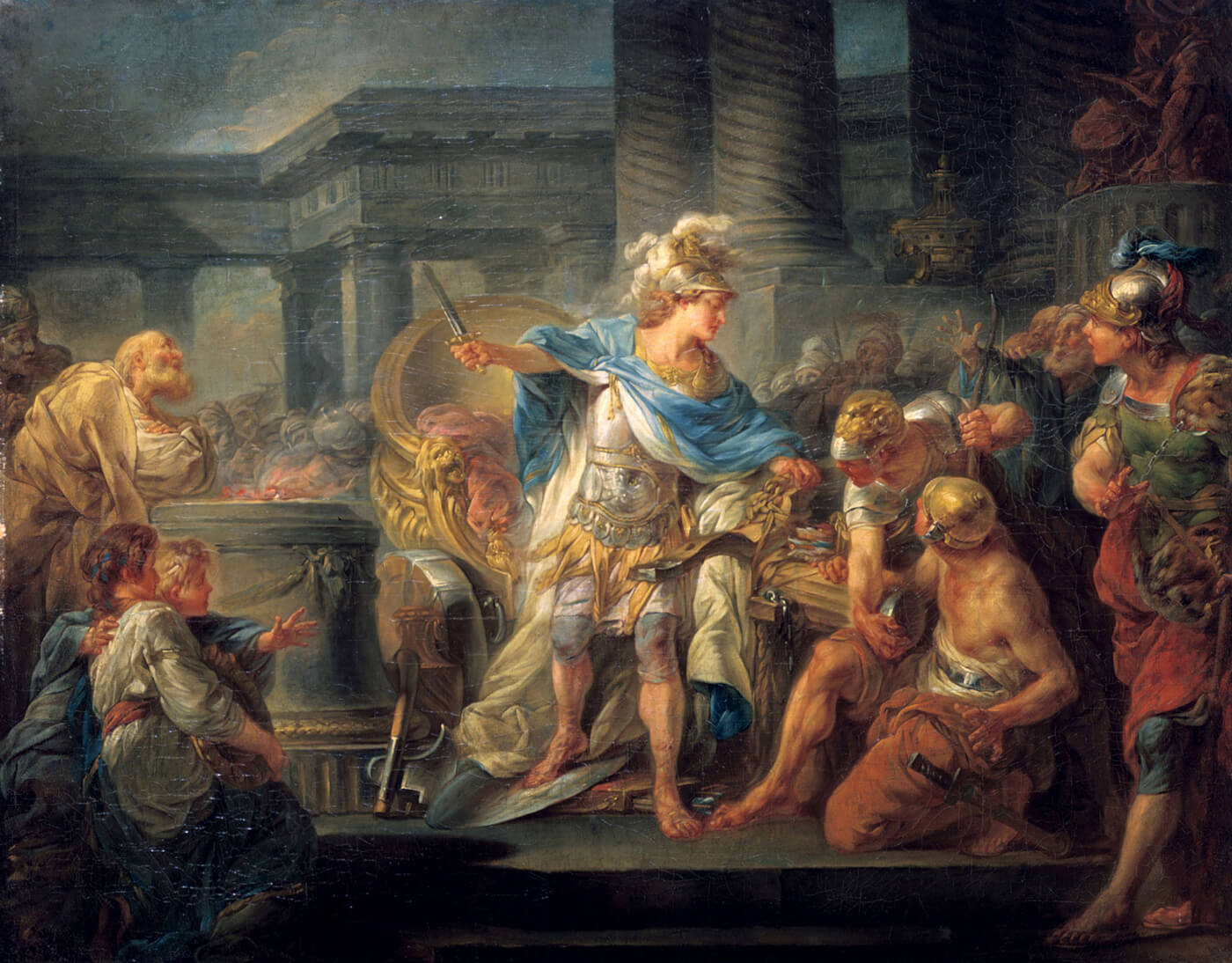Aporia is a tricky term to understand; no doubt in part because it merits two definitions. But fear not, we’re going to define aporia twice! We’re also going to break down some aporia examples in philosophy and writing to get to the bottom of the aporia meaning. By the end, you’ll know what aporia is; how to recognize it, and how to apply it.
What Does Aporia Mean?
Aporia meaning explained
Aporia – rooted in Greek, romanized as aporíā – is a word that’s been used in philosophy for thousands of years.
This video from Dr. Gregory B. Sadler, Professor of Philosophy, examines the root of aporia.
What is Aporia? • Socrates and Aporia by Dr. Gregory B. Sadler
Dr. Sadler presents a philosophical quandary by citing Socrates and Meno, asking whether or not an immoral person, who otherwise thinks they know virtue, can preach morals to others. This supposition creates a critical impasse for Socrates, as he cannot say for certain whether or not such an immoral person can preach morals despite knowing virtue.
APORIA DEFINITION
What is aporia?
Aporia is two things:
A critical impasse in philosophical reasoning
A rhetorical device – feigned or unfeigned – that utilizes doubt to discredit the legitimacy of other arguments.
What is Aporia?
Aporia in philosophy
Aporia is used in philosophy to describe a critical impasse in reasoning. In Ancient Greece, philosophers such as Plato, used “dialogue” to question human nature. Many dialogue questions were answered, but some were not. Why? Because they induced a state of aporia, in which no philosopher, not even Socrates could garner an answer.
Aporia deals with “brushing up” against the limits of human understanding. For this reason, it is sometimes connoted with “paradox.” However, there is one key distinction: a paradox must include a state of aporia, but a state of aporia may not necessitate a paradox.
For example: the story of Alexander The Great and The Gordian Knot includes a clear state of aporia, yet does not include a paradox. In the story, an Oracle proclaims that if anybody is able to unravel “The Gordian Knot,” they will go on to rule all of Asia. However, nobody was able to untie the knot; it seemed physically impossible. That is until Alexander arrived and cut through the knot, unspooling its string for the people to see.

What is Aporia? • Alexander the Great cuts the Gordian Knotby Jean-Simon Berthélemy (1743–1811)
In this example, Alexander transcends past a state of aporia. The people simply believed – through their own reasoning – that “unraveling” the knot was not possible. But, Alexander showed that their reasoning was merely lacking in creativity, ultimately disproving the aporia.
Alternatively, some aporia cannot be transcended. For example: The Bootstrap Paradox details a state of aporia that can be reached trying to make sense of first causes in causal loops.
Here’s a great example:
What is Aporia? • The Bootstrap Paradox by Smart by Design
In this example from Smart by Design, a person receives a manual on how to build a time machine. Over the next ten years, they build a time machine, then travel back in time to give the manual to their younger self… but then the book is destined to always be travelling through time to continue ensuring the eternal development of the time machine; thus becoming a causal loop. This paradox induces a state of aporia because it presents a critical impasse that cannot be explained.
In theological studies, philosophers such as Thomas Aquinas, argue that there must be a “first mover,” God, who set “cause and effect” into motion. One could view Aquinas’s theory as evidence against the aporia of first-causation; however, it has not been proven.
Define Aporia in Writing
Aporia examples in writing
Aporia is also often used as a rhetorical device to make people/characters doubt the legitimacy of their claims. In Plato’s Meno, Socrates often feigns ignorance to prod Meno deeper into his logic of reasoning. Ultimately, Meno falls into a state of aporia, and realizes that his claims are actually unsound.
The device of “feigned ignorance” described in the tale of Socrates and Meno has also come to be known as Socratic Irony.
Aporia is a rhetorical device that can make people/characters “see the light” so to speak. But it’s also a rhetorical device that people/characters use to express legitimate doubt.
Here’s a great example from William Shakespeare’s Hamlet:
Aporia Examples in Hamlet
To be, or not to be, that is the question:
Whether 'tis nobler in the mind to suffer
The slings and arrows of outrageous fortune,
Or to take arms against a sea of troubles
And by opposing end them.
Here, Hamlet is genuinely questioning whether it is better to let life roll over or to take matters into one’s own hands and kill oneself. Ultimately, he does not know, which induces a state of aporia.
In the next example, Dr. Julian Wolfreys, Professor of Literature, examines how another famous philosopher, Karl Marx, reached a state of aporia within the parameters of his own worldview:
“A particularly striking example of the experience of the aporetic appears in Karl Marx's consideration of the commodity fetish, where he finds it logically impossible to explain, within the limits of his discourse, what transforms material into its mystified form as desired commodity, and what invests the commodity object with its commodified mystique.”
What is Aporia? • Aporia Examples in The Writing of Dr. Julian Wolfreys
Here, Wolfreys suggests that Marx reached a critical impasse in his logic of reasoning in relation to the mystification of commodities.
Aporia is a complex term that has a variety of applications in writing. As you continue reading, look out for feigned ignorance and moments of critical impasse to see if you can identify states of aporia.
Up Next
What is Socratic Dialogue?
Aporia is just one technique the Ancient Greeks used to work through philosophical lines of inquiry? Want to learn more? Check out our next article on The Socratic Dialogue, with examples from Pulp Fiction, Wall Street, and more. By the end, you’ll know what Socratic Dialogue is and how it works.
